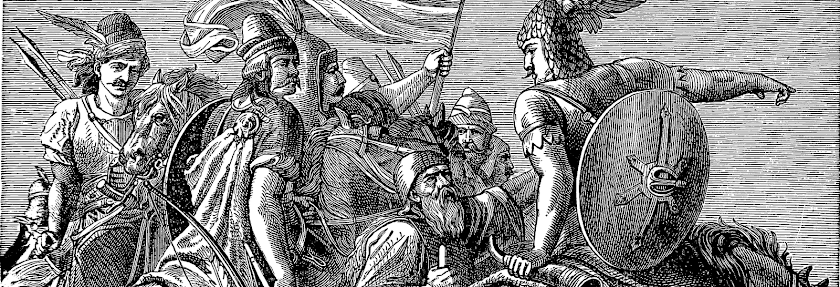I had my brother over for Thanksgiving, and we got to talking about Space Hulk. We really like the premise, but the odds being so stacked against the marines is hard because on some level, even the genestealer player (being a human) bears some sympathy for them. Personally, I have the difficulty that I like the genestealer flavor ("we are legion and we will eat you"), but when I play wargames I kind of like to take the side with long odds against them, which pushes me towards playing the humans.
These two concerns got us thinking about changing up the scenario design of the game. Normally, the Marines start strong but have to haul ass to an objective before they are overwhelmed by the genestealers, who keep spawning more-or-less indefinitely. The genestealers do have strengths other then sheer numbers, though, namely speed, hidden information, and a huge advantage over the marines in melee. This set of capabilities suggests several variants of the traditional Space Hulk idiom. The natural extension, it seems to me, is to run a "hunting the hive tyrant"-type scenario with limited or no reinforcements for the genestealers. One of their blips is the target (broodlord, I guess), and if the marines can kill it, they win the mission. For the genestealer, then, this is a shell game - if you keep the target in the back, then it's clear that that is the objective (unless you're up against a canny genestealer who puts a decoy in the back...), but if you bring it forward in an attempt to conceal it, then you risk losing it. You could try to spread your forces out across the map evenly so the marines have to engage each blip to find the target, but then you risk being unable to support the target once it's engaged. In any case, creating a mobile, hidden objective for the genestealer's defense plays to their strengths of mobility and hidden information and makes it plausible to deny them their numerical strength. I also considered the addition of trap-like tokens; something like an immobile ambush counter which might be something unpleasant or might be nothing, in order to aid the defense by serving much like minefields in other games.
An inversion of this scenario would put a limited genestealer force on offense against a group of marines with the aim of assassinating their sergeant, captain, or other leader. Again, this plays to speed, melee offense, and hidden information, but puts a pretty severe limiting factor on the genestealer's ability to just throw more bugs at the problem. For bonus points, allow the genestealer some number of ambush counters too. Both of these missions probably entail some sort of turn limit to push Team Offense towards the enemy, and custom map arrangements to make them workable.
The other possibility that I considered was a system by which the players alternate sides, and a mission is iterated until the humans win or both players agree that it's quite impossible. This started me towards thinking about a simplistic 'campaign system', which would provide a scoring bases for repeated games much like Starmada's Simplest Campaign System, but without resource management carrying between games. Perhaps 'series' is a better term than 'campaign'. In any case, the scheme I propose is as follows:
- Two players agree to play a series of chosen missions, and also agree on rules allowable (equipment availability, psionics, ambush counters, tactical marines, flavor of flamer (1e vs 2e), and so forth)
- For each mission, in order
- Each player attempts the mission with the default forces. The loser of the previous mission chooses who will play which side first; in the event of a draw in the previous mission, flip a coin for who chooses.
- If both players win the mission as marines with default forces, the mission is a draw. If only one does, then they have won this mission. In either case, move to the next mission. (Variant - if both players win with default marine forces, they instead move to the bidding step below, with a bid cap equal to the value of the default force)
- If neither player could complete the mission with default marine forces, they use the bidding procedure outlined in Deathwing.
- Whichever player bids lowest plays the mission with the forces that he bid. If he wins, he has won the mission and the series advances.
- If the low bidder loses, then the high bidder must play the mission with the point value that he bid. Should he lose, the two players may either declare the mission a draw and move to the next one, or they may re-bid.
- Should the high bidder win, the low bidder may attempt the mission with forces with the high bid in points. Should he lose, the high bidder has won the mission, and if he wins, then the mission is a draw. In either case, the series then moves to the next mission.
- Once all missions have either been drawn or won by one player, whichever player won the most missions wins the series. If both players have won an equal number of missions, break the tie using the sum of the bid points they spent on their victories. If it's still a tie, add another mission as a sudden-death tiebreaker or have a headbutting contest or flip a coin or something.
(Also, further work - generalization of this structure beyond two players)
Sooo... yeah. Hey Matt, up for some Space Hulk?

Did someone say "Space Hulk?"
ReplyDeleteDo you have a real flesh and blood....well Plastics and Cardboard copy of Space Hulk?
ReplyDelete